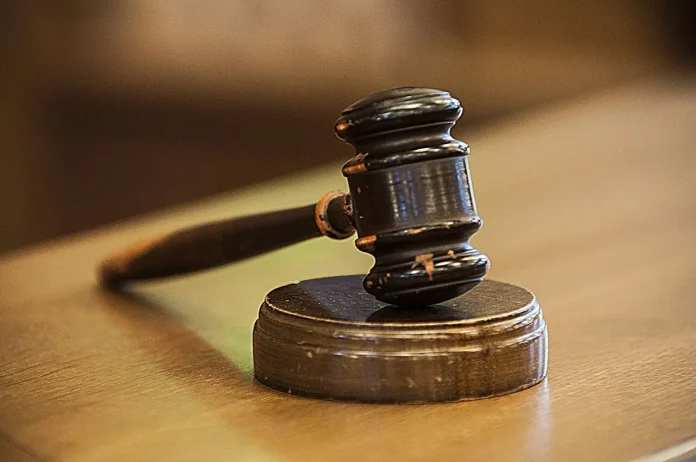The Socio-Economic Rights and Accountability Project (SERAP) has filed a lawsuit at the ECOWAS Community Court of Justice against President Bola Tinubu’s government and the 36 state governors of Nigeria. The lawsuit challenges the alleged misuse of the Cybercrimes (Amendment) Act 2024, which SERAP argues criminalizes legitimate expression and infringes on the human rights of Nigerians, including activists, journalists, bloggers, and social media users.
Background of the Case
The ECOWAS Court had previously ruled on March 25, 2022, that Section 24 of the Cybercrimes Act 2015 was “arbitrary, vague, and repressive.” The Court directed Nigerian authorities to repeal the section to comply with human rights obligations. Although the Cybercrimes Act was amended in 2024, SERAP contends that the revisions failed to address the problematic aspects of the law. The organization asserts that the amended provisions remain open to abuse, thereby stifling freedom of expression and media freedom.
In the lawsuit, referenced as ECW/CCJ/APP/03/2025 and filed last week in Abuja, SERAP specifically challenges the compatibility of the amended act with the rights to freedom of expression and information, as guaranteed under international human rights treaties.
SERAP’s Concerns
According to SERAP, the Cybercrimes (Amendment) Act 2024 contains vague and arbitrary provisions that have been used to target peaceful and legitimate expressions. For example:
- Section 24(1)(b) criminalizes acts that allegedly cause “a breakdown of law and order,” a term SERAP describes as unclear and open to interpretation.
- Section 58 broadly defines “cyberstalking” as conduct that causes a “reasonable person to feel fear,” which SERAP believes lacks sufficient safeguards to prevent misuse.
The organization argues that these provisions have been weaponized by authorities to suppress criticism, intimidate dissenters, and infringe upon the human rights of Nigerians. SERAP highlights several examples of alleged misuse, including:
- Activist Dele Farotimi being charged under the act’s provisions.
- Journalist Agba Jalingo being prosecuted for reporting on alleged misconduct by a relative of a former Cross River State governor.
- Social media user Chioma Okoli being arrested for criticizing the sugar content in a tomato mix product.
- Funke Adeoye being summoned by police for sharing comments on her X account.
SERAP claims that these actions have created a “chilling effect” on freedom of expression and media freedom in Nigeria.
The ECOWAS Court’s Previous Ruling
The 2022 ECOWAS Court ruling found Section 24 of the Cybercrimes Act 2015 incompatible with Article 9 of the African Charter on Human and Peoples’ Rights and Article 19 of the International Covenant on Civil and Political Rights. Despite the court’s directive for Nigeria to amend the legislation, SERAP asserts that the 2024 amendment has perpetuated the same issues.
SERAP’s Requests to the Court
In its suit, SERAP is seeking the following reliefs from the ECOWAS Court:
- A declaration that Section 24 of the Cybercrimes (Amendment) Act 2024 is unlawful, inconsistent, and incompatible with international human rights treaties, including the African Charter on Human and Peoples’ Rights.
- A declaration that the enforcement of Section 24 by Nigerian authorities violates the rights to freedom of expression, information, opinion, and privacy.
- An order directing the Nigerian government to repeal or amend the law in line with international human rights standards.
- Any other orders the Court deems appropriate.
Implications of the Law
SERAP warns that the amended legislation disproportionately punishes individuals for exercising their rights and restricts public discourse on matters of legitimate concern. The organization notes that Nigeria’s obligations under international law require authorities to protect and facilitate freedom of expression, not suppress it.
Examples of Misuse and Decline in Internet Freedom
SERAP references reports by Freedom House for 2023 and 2024, which document a decline in internet freedom in Nigeria, partly attributed to the enforcement of the Cybercrimes (Amendment) Act 2024. Bloggers, journalists, and social media users have been arbitrarily arrested and detained for sharing factual reports or opinions deemed offensive by the authorities.
The lawsuit also underscores cases where the law has been used to stifle criticism and punish dissent, often under vague and arbitrary terms such as “cyberstalking.”
Conclusion
SERAP’s lawsuit represents a significant pushback against what it describes as the “weaponization” of the Cybercrimes (Amendment) Act 2024. The organization emphasizes that freedom of expression is not only a fundamental human right but also essential for democracy and civil society.
As no hearing date has been set, the case is expected to generate significant interest and debate within and beyond Nigeria’s borders, with implications for human rights and internet freedom in the region.
Stay tuned to Hobnob News for updates on this developing story.

